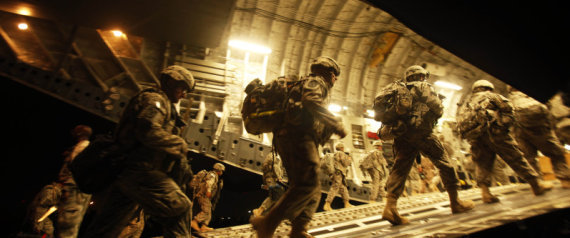High_Gravity
Belligerent Drunk
Pentagon Having Second Thoughts On Iraq Withdrawal

Pentagon Having Second Thoughts On Iraq Withdrawal

WASHINGTON Eight months shy of its deadline for pulling the last American soldier from Iraq and closing the door on an 8-year war, the Pentagon is having second thoughts.
Reluctant to say it publicly, officials fear a final pullout in December could create a security vacuum, offering an opportunity for power grabs by antagonists in an unresolved and simmering Arab-Kurd dispute, a weakened but still active al-Qaida or even an adventurous neighbor such as Iran.
The U.S. wants to keep perhaps several thousand troops in Iraq, not to engage in combat but to guard against an unraveling of a still-fragile peace. This was made clear during Defense Secretary Robert Gates' visit Thursday and Friday in which he and the top U.S. commander in Iraq talked up the prospect of an extended U.S. stay.
How big a military commitment might the U.S. be willing to make beyond 2011? "It just depends on what the Iraqis want and what we're able to provide and afford," Gates said Thursday at a U.S. base in the northern city of Mosul where U.S. soldiers advise and mentor Iraqi forces. He said the U.S. would consider a range of possibilities, from staying an extra couple of years to remaining in Iraq as permanent partners.
Less clear is whether the Iraqis will ask for any extension.
Powerful political winds are blowing against such a move even as U.S. officials assert that Iraqi leaders Sunni, Shiite and Kurd are saying privately they see a need for help developing their air defenses and other military capabilities. U.S. training of Iraqi forces up to now has focused on combating an internal enemy, including al-Qaida, rather than external threats.
If the Iraqis choose not to ask for more help, then Dec. 31 probably will mark the end of U.S. military intervention that was so close to failing when Gates became Pentagon chief in December 2006. He once said the U.S. faced the prospect of a "strategic disaster" at the heart of the Middle East.
Meghan O'Sullivan, a top adviser on Iraq to President George W. Bush when his administration negotiated the 2008 security agreement that set upcoming deadline for a final U.S. military withdrawal, said time is too short to negotiate a full reworking of that legal pact.
"The question is, can both sides agree on something more modest but which still provides an adequate legal basis for a smaller number of American troops to stay in Iraq, with quite defined missions?" she said in an email exchange last week. O'Sullivan is a professor of international affairs at Harvard University's John F. Kennedy School.
Pentagon Having Second Thoughts On Iraq Withdrawal
